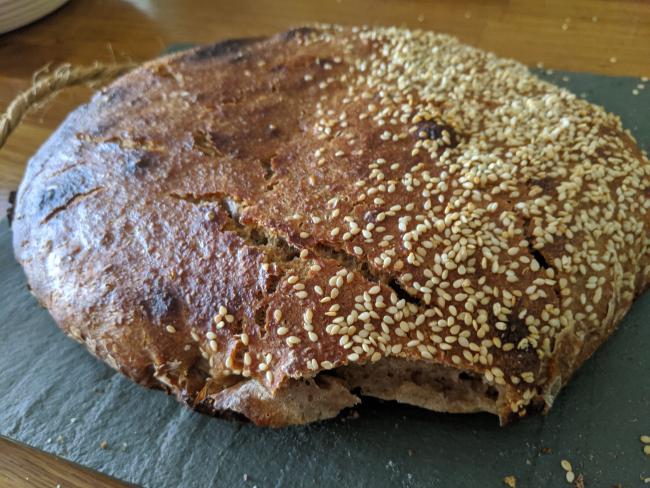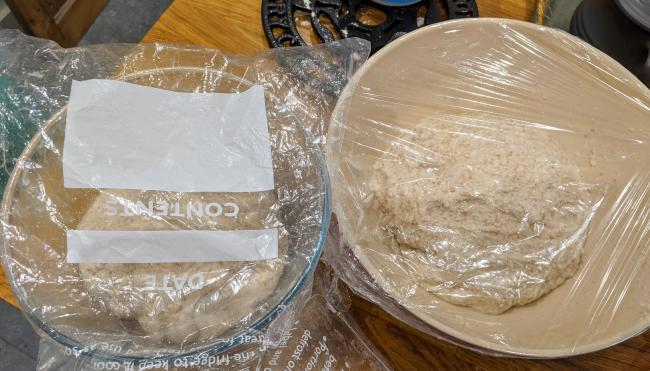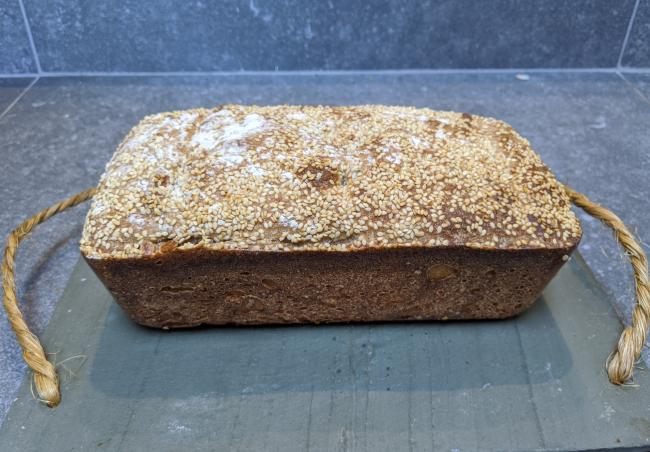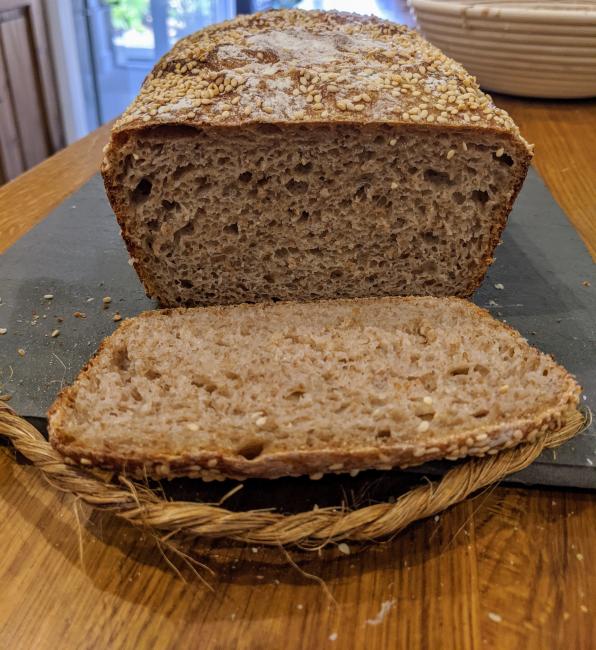
I've had some good loaves, and some not so good loaves, but never a total disaster - until now.
Everything seemed to go wrong with this, and it's only right that I document this to learn from it.
There were lots of things I changed here: I did a 50/50 mix of strong white bread flour and wholemeal flour, I tried to bake it in an oval Dutch oven rather than my usual round one, and I did both rises at room temperature.
Probably just as importantly, we're going through a mini-heatwave here in London with the temperature over 30C and humidity much higher.
Lastly, I made two loaves at the same time - a regular boule shaped loaf and a sandwich loaf.

I was getting pretty confident and wanted to have a go at a 50-50 loaf. Mixing the flour together and then folding in the starter seemed to go really well, and the dough felt really tough and elastic. The sandwich loaf was also a 50-50 mix.
I left both doughs at room temperature to bulk-rise overnight and in the morning, they had both risen significantly to the point that they were overflowing their bowls. I wasn't worried at this point as I had done this before and actually got a really good loaf out of such a long fermentation. Both doughs were really airy and light and didn't have any obvious signs that they had started to collapse.
I laminated the sandwich loaf and transferred it to a sandwich tin to complete its second rise.
For the boule loaf, I pre-shaped it and left it to rest on the worktop for 30 minutes. At this point, I was already having problems. The dough wasn't holding its shape, was very wet, and just generally very difficult to handle.
After 30 minutes, I then tried to shape it. It really wasn't very happy and was refusing to hold any shape. I also wanted to coat the dough in sesame seeds, but they just went everywhere and I think more got inside the loaf than on the outside. Eventually, I scooped it up and dumped it into the floured banneton to complete the final rise.
About four hours later, I baked the sandwich loaf whilst the boule loaf continued to rise.
A classic sign of over-proofing is that the dough can't hold itself up. The dough for my boule loaf was difficult to handle in the shaping stage, falling flat every time I tried to shape it, and when it was eventually baked it spread out across the pan and hardly rose. This indicates to me that the dough was over-proofed. I haven't really experienced this before, but environmental factors clearly had more of an impact than I expected and I hadn't really considered how much difference a rise in room temperature would do to the dough and the speed at which it would proof.
The sandwich loaf didn't have as much of an issue and did rise slightly. However, it's difficult to know for sure because the sandwich tin would have held its shape in place. I suspect it benefited from being baked first and therefore had less time on its second rise. When baked, it had more of a shine and darkness to it than I liked, and this is probably because the temperature was too high: I must remember to only cook it at 200C next time.
Another classic sign that indicates both loaves were over-proofed was that they both tasted very sour. This could have also been an issue with the starter, but seeing that both loaves were pretty dense, I think it's safe to assume that over proofing was the culprit.
Both loaves tasted less sour on the second day, and I am getting through the sandwich loaf which is actually okay. The boule was a total disaster and I'm sorry to say that it just ended up in the bin.
Next time, I'm going to try and get the bulk rise in over five to seven hours during the day and then shape and refrigerate overnight in the banneton for the second rise. This seems to be a winning formula and is less likely to result in over proofing.


